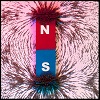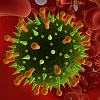IPad Apps

Rocks and Minerals

Structure of earth

Simple Machines

Magnets

Animal Adaptations

Plant Adaptations

Diseases

Solar System
Welcome to FunAppSchool

IPad and IPhone Apps
Educational Games for IPad and IPhone. English Grammar and Science Apps for Elementary and Middle School Kids.
Albert Einstein
Father of Modern Physics, General Theory of Relativity
Who was the most famous physicist of the 20th century, the Nobel Prize Winner for Physics in 1921, and the father of modern physics? None other than the great German scientist Albert Einstein.
Albert Einstein was the eldest son of Hermann and Pauline Einstein, born on the 14th of March 1879 in Germany. His parents did not think he would survive because he was born with a huge head and they thought he was deformed.
He was also said to have a speech problem that made his speak very slowly, whenever he did speak. Even so, he was excellent at his studies and studied for the first 7 years of his life in Germany.
He had a natural curiosity, which was perhaps first sparked off when he was 10 years old when his father showed him a compass. He seemed to think there was something that made the needle in the compass move even though there was an “empty space”.
You would think such a great man did well in school. In fact, even though he loved maths and science he was only an average student. This did not stop him from writing his first scientific paper when he was just 16 years old. It was called “On the investigation of the State of the Ether in a Magnetic Field”.
After attending a few schools, failing his university entrance exam, he finally finished his studies in 1900, and went into work in the area of theoretical physics. He published his first scientific paper in 1905, when he was 26 years old.
This paper changed the then accepted theory of relativity (which Newton had proposed) and explained how energy and mass were linked through space and time, which explained how matter can be converted into energy, through the famous formula E = mc2.
The E stands for energy, ‘m’ for mass and ‘c’ for the speed of light in a vacuum.
In 1909 he became professor of theoretical physics at the University of Zurich, then in Prague, and again in Zurich.
In 1911 he proposed the general theory of relativity that showed that light from another star could be bent by the gravity of the sun. This was later proved in 1919 by a British explorer to be true.
In 1914, he was invited to Berlin to work on a scientific experiment when the World War I broke out.
Since he was a Jew, during WWI, there were many efforts by German scholars and politicians to stop Einstein’s work and stop him from teaching what he discovered.
During World War II, he had given up his German citizenship because of all the problems he was experiencing and travelled to America where he was made citizen in 1940.
During this period, he also feared that Germany might be working on atomic bombs, and he wrote a letter to the then president of America, Franklin D. Roosevelt and told him so. He did not however help America build atomic bombs, as some people believe.
It is said that between the years of 1901 and 1954 Albert Einstein published more than 300 scientific articles related to his work.
He was offered the presidency of the State of Israel in 1952, but he refused it to instead establish the Hebrew University in Jerusalem, which helped Jewish students.
During his lifetime, Einstein travelled to many places on work. He had been to America (before becoming a citizen in 1940), Singapore, Ceylon, Japan, and Palestine. He preferred his experience in Japan the most because he thought the Japanese were sensitive, intelligent and artistic people.
Because of all these travels abroad, and always being busy with his many theories, lectures, papers and discoveries, unfortunately Einstein’s marriage to his wife Mileva with whom he had three children (a girl before he married her, and 2 boys after) did not last.
Einstein later married his first cousin Elsa and adopted her two daughters from her previous marriage. He remained with her until she died of heart and kidney problems in 1936.
For his incredibly groundbreaking work in so many areas of physics, Albert Einstein received the Nobel Prize for Physics in 1921. Besides this, he also had about six other awards.
On the 17th of April 1955 one of Einstein’s stomach arteries burst, causing a lot of internal bleeding. This had once before been operated but this time when he was rushed to hospital he refused surgery.
He said “I want to go when I want.... I have done my share, it is time to go. I will do it elegantly”. He died the next morning 18th April 1955 at the Princeton Hospital.
A doctor who wished to be able to study and understand the workings of the brain through this great genius removed Einstein’s brain during the medical examination after his death.
His brain was later donated to the Princeton Medical Centre.
Einstein’s body was cremated and his ashes have been scattered in a location that no one knows.







